Quality is important –
but what does that mean for us?
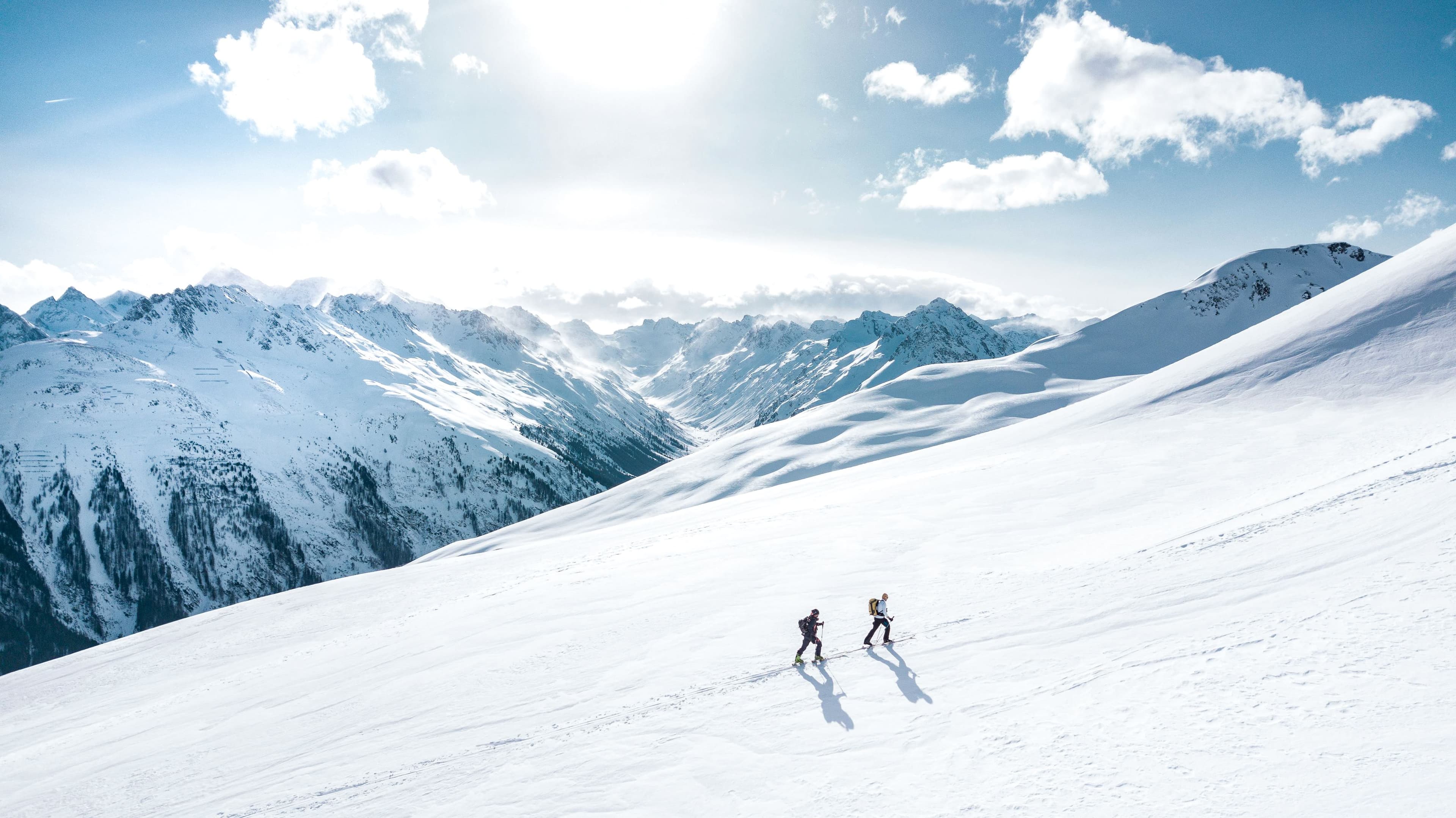
And what does quality have to do with knowledge transfer, skills and error tolerance? Christian Hengemühl and Torsten Wenk share their insight into the latest developments and findings on this topic.
With the energy of our employees, we were able to achieve this revenue in 2024:
Total sales
66,850,000 CHF
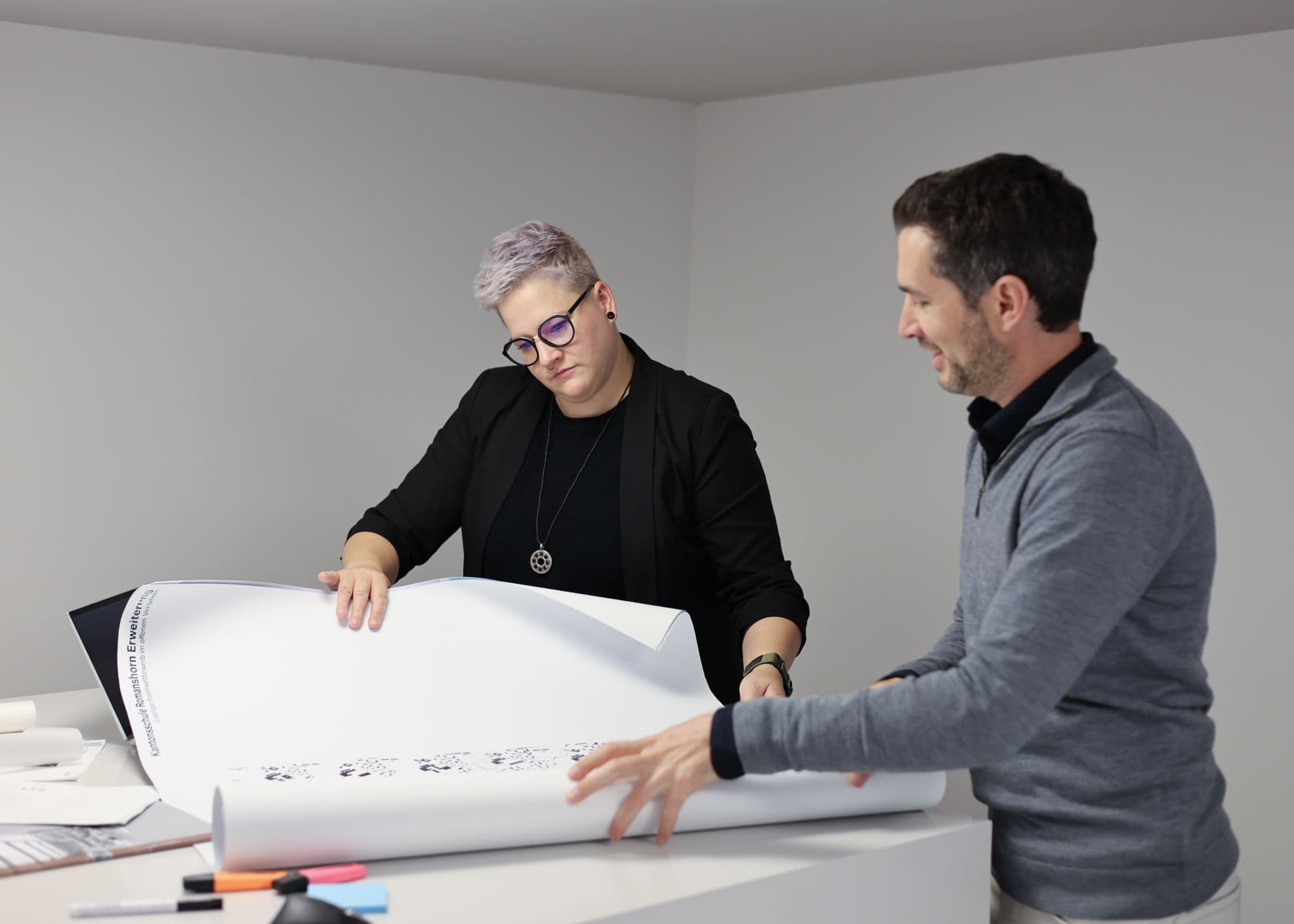
A competition
with a vision
What will schools look like for the next generation? One possible answer is developed as a part of the construction project for the new high school campus in Romanshorn. The open architecture competition is guided by a dialogue-based process, where future-oriented learning is integrated on an architectural level. Furthermore, the new design also needs to fulfil requirements related to sustainability and cost-efficiency.
Innovative solutions are needed for the future of learning and teaching. Janine Arnold, David Sorg, Andreas Sägesser and Christoph Rothenhöfer share their insight into what it means to reconcile quality standards with creative solutions – sometimes forging unconventional paths in the process.
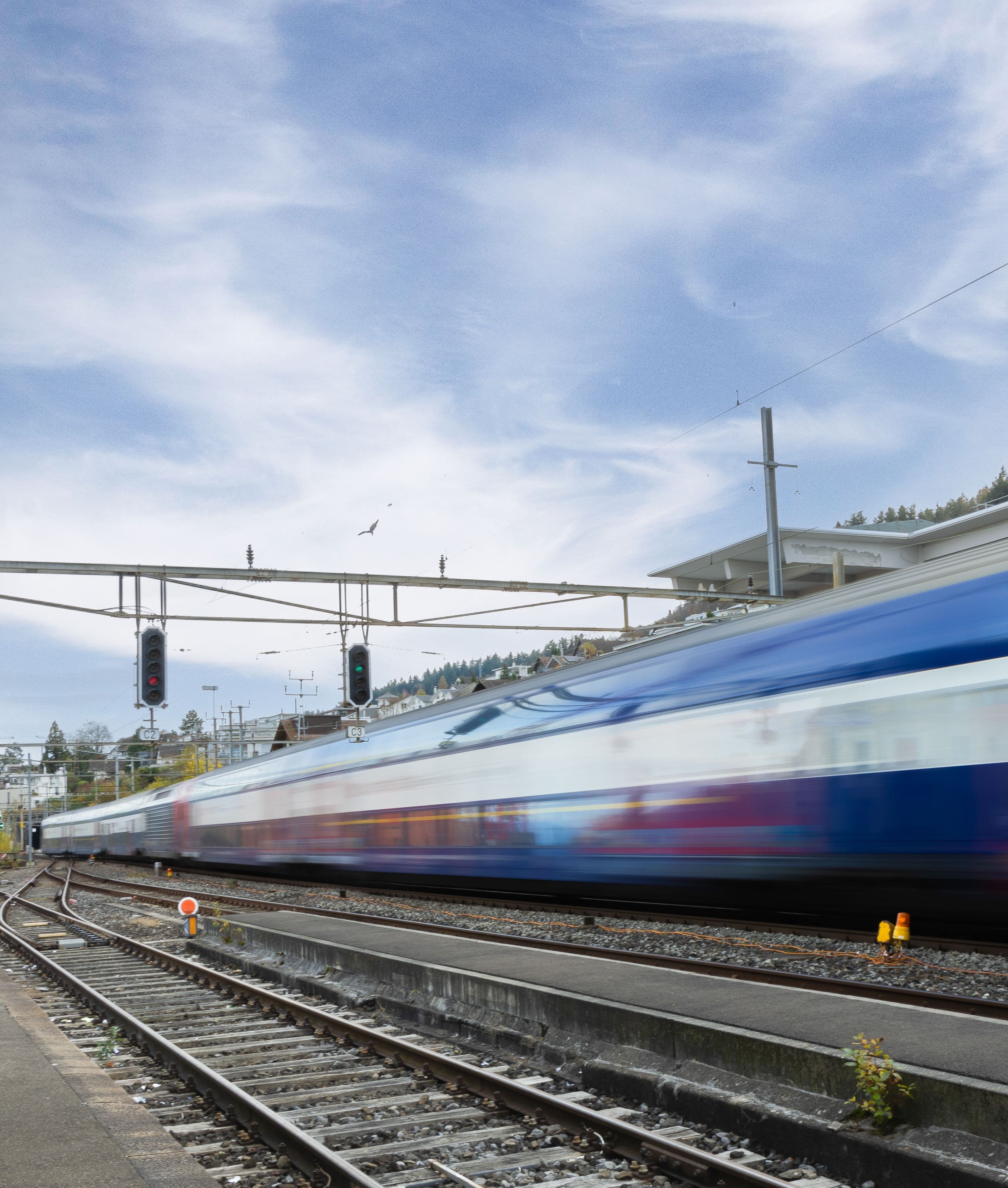
Suddenly, everything moves very fast
Executing a construction plan is a challenge, even without factoring in that most construction projects are prototypes and therefore unique. In our project work, the transition from planning to building is not the only shift to deal with: we are just as concerned about handing the baton over from one generation to the next, by successfully passing on knowledge and skills. Our knowledge and technical expertise serve as our currency and enable us to deliver high quality work every day.
A visit to Matthias Vescovi on the construction site at Horgen Oberdorf railway station reveals the thoughts, challenges and insights that can be experienced in this dual transition. What is it like to get involved in an ongoing construction project and what does good work have to do with time and acceptance?
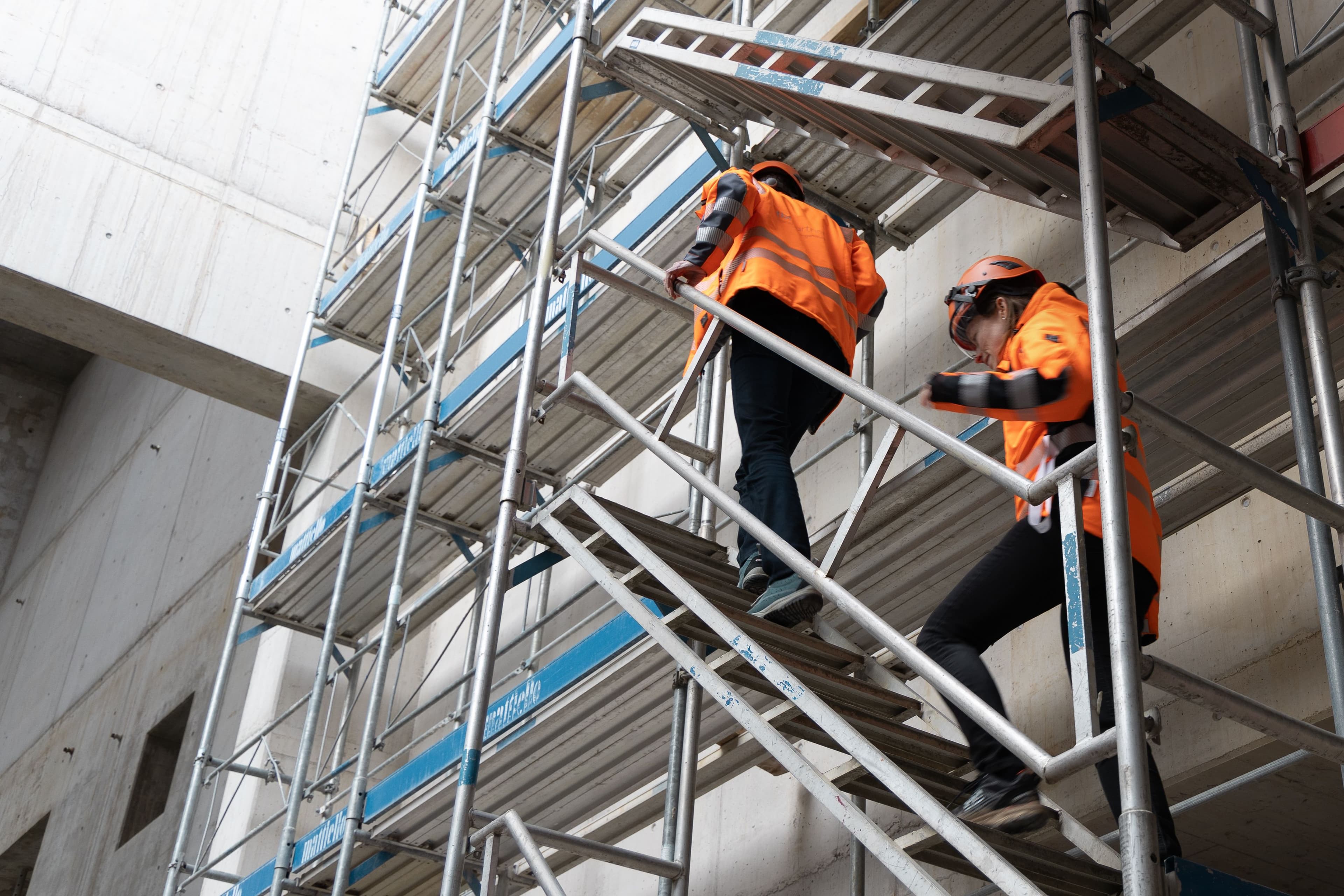
Without plans, but not aimless
As a company that specialises in the planning, support and implementation of relevant infrastructure, the quality of our work is at the heart of what we do – for us, for our partners and for society. Digitalisation introduces many opportunities to govern and improve quality. However, the real added value does not lie in the digital tools themselves, but in the enhanced collaboration they foster.
Over the course of the last five years, the remodelling of the Linth waste incineration plant (one of our largest projects) has been carried out completely digitally – driven by data and 3D-modelling. Paper plans can be found neither in the planning office nor on the construction site. Susanne Haag and Dominik Schenk share their take on the opportunities and challenges that arise from working with a central data model and how transparency and collaboration are redefined as a result.
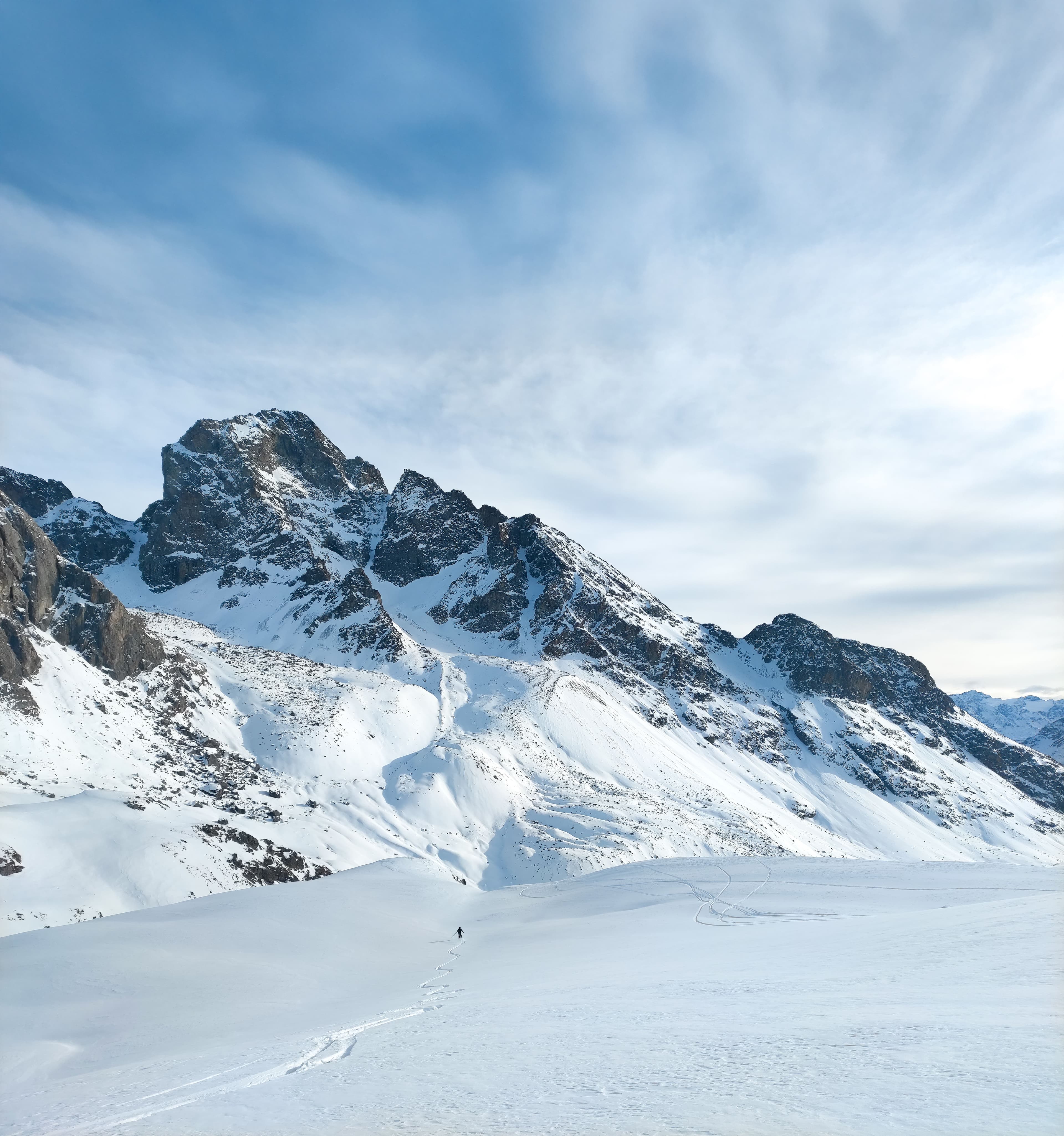
‘When the mountain calls’
Isabel Blatter takes us to new heights: as an avid skier and mountain touring enthusiast, she knows what you need in your backpack. In addition to climbing and touring equipment, this also includes locating probes, braveness and confidence.
Isabel tells us how she discovered her passions, what motivates her and what teamwork and nussgipfel (hazelnut croissants) have to do with it. Once again, we learn that it is not primarily about what we do – but how and, above all, why we do it.
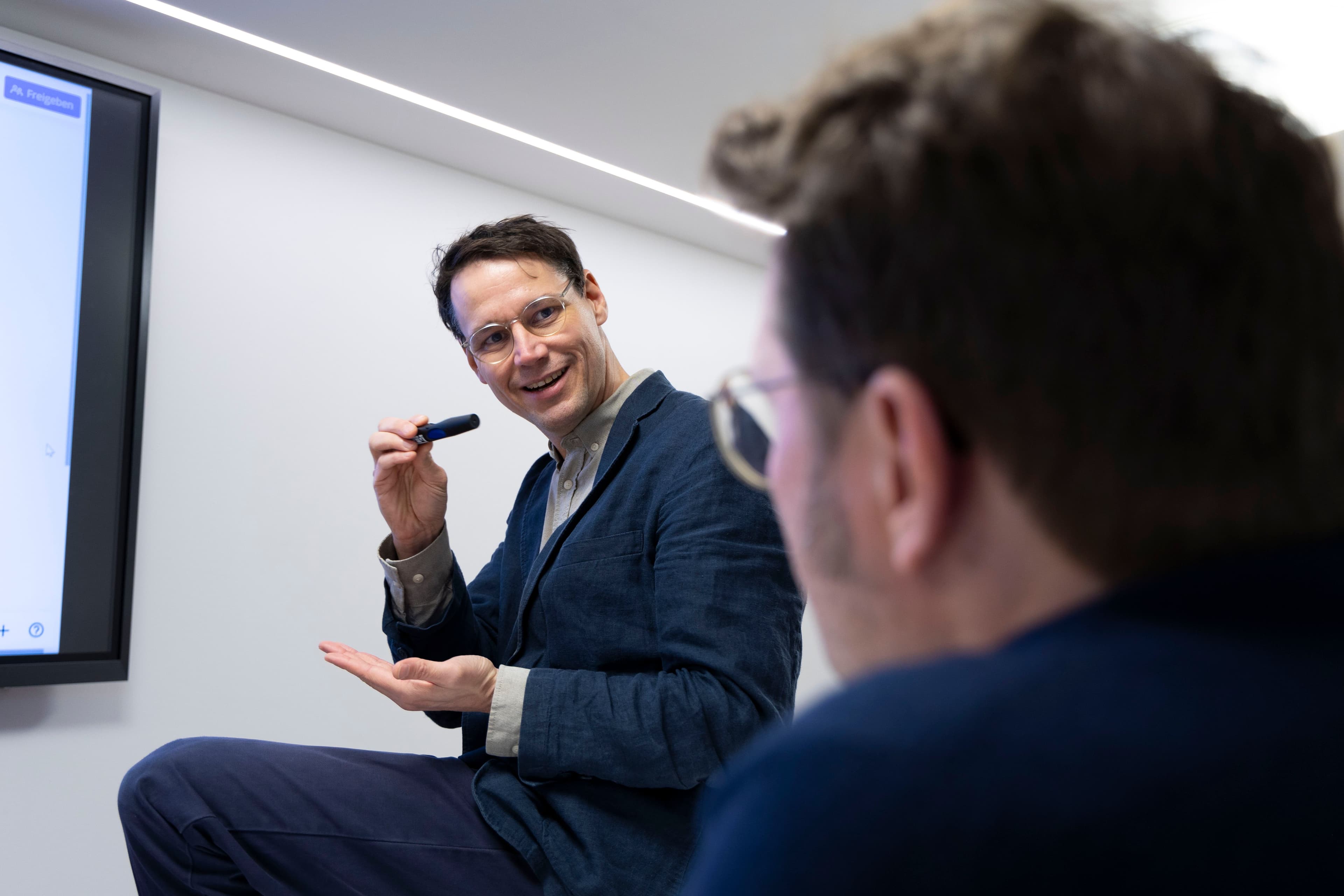
From technical committee to competence network
Merely having specialist knowledge is no longer enough. As a growing company, we too are confronted with questions of knowledge transfer and, as a result, quality assurance.
We spoke to Ulla Hartmann, Jens Schmidt, Andreas Münzmay and Christian Hengemühl about an internal transformation that requires equal parts of courage and curiosity. We explore which structures are needed to ensure long-term quality – and which structures should be broken down.



